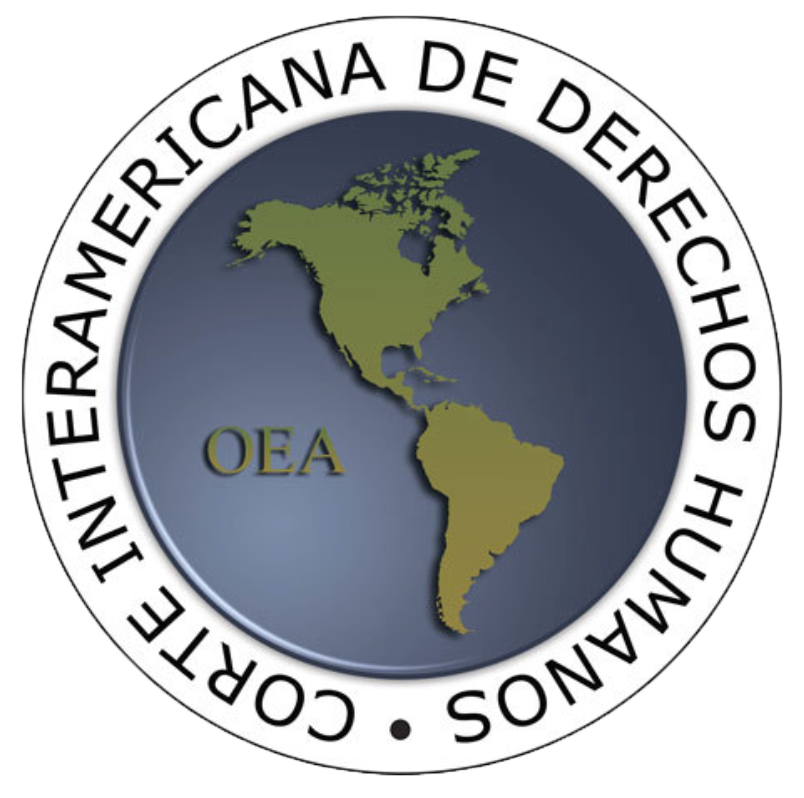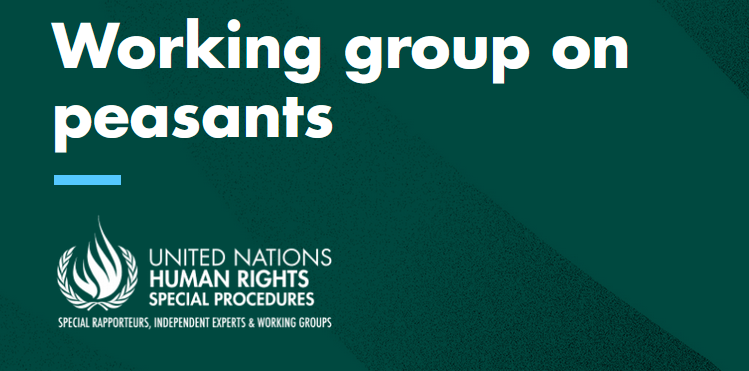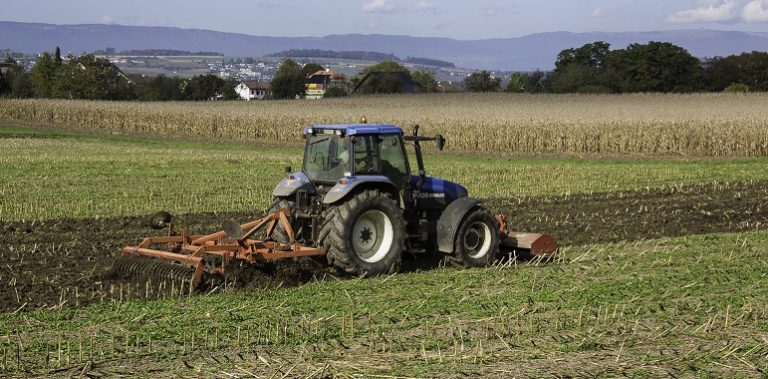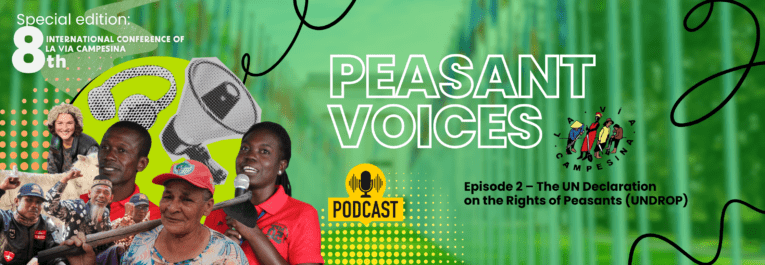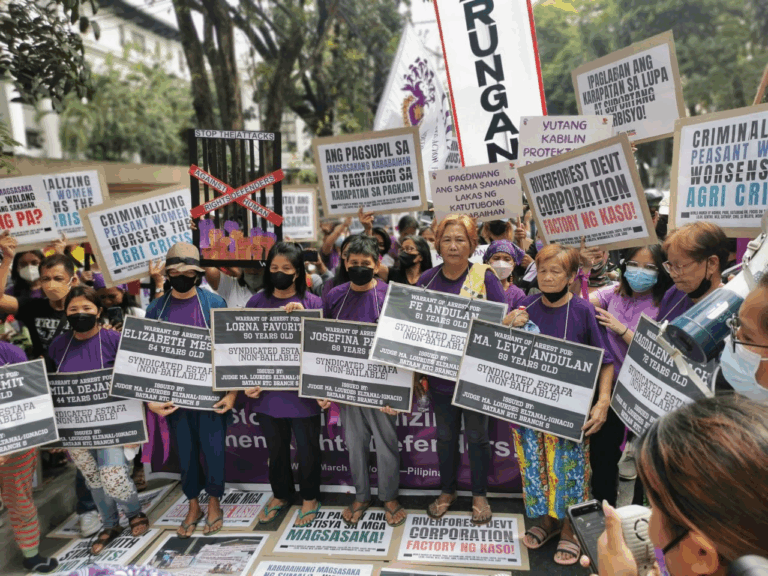Inter-American Court of Human Rights: first case law on the links between the Declarations on the Rights of Peasants and Indigenous Peoples
The case of Indigenous communities members of the Lhaka Honhat (Our Land) association v. Argentina
In February 2020, the Inter-American Court of Human Rights (IACHR) handed down a ruling recognizing the rights of both indigenous peoples and peasants. It orders that indigenous peoples’ right to land be restored, and that their territory be returned to them, but at the same time, it relies on the Declaration on the Rights of Peasants to protect the rights of non-indigenous peasants who are going to be displaced. In this way, it balances the rights of these two communities, and gives us a first example of successful articulation between the two UN Declarations of Rights.
For the first time in a contentious case, the Court analysed the rights to a healthy environment, to adequate food, to water and to cultural identity autonomously on the basis of article 26 of the American Convention, ordering specific reparation measures for the restitution of these rights, including actions for access to water and food, for the recovery of forest resources and for the recovery of indigenous culture.
The case is linked to the claim for recognition of land ownership by Indigenous Communities belonging to the Wichí (Mataco), Iyjwaja (Chorote), Komlek (Toba), Iyjwaja (Chorote), Iyjwaja (Chorote), Komlek (Toba), Niwackle (Chulupí) and Tapy’y (Tapiete) peoples in Salta Province, Argentina (on the border with Paraguay and Bolivia). These lands have also been occupied by other settlers and an international bridge was built without prior consultation by the state. There has been a constant indigenous presence in the area since at least 1629.
In its ruling, the Court determined that the state violated the right to communal property by failing to provide legal certainty and allowing the presence of non-indigenous “creole” settlers to continue in the territory. This is despite the fact that the indigenous claim to ownership has been valid for more than 28 years. It also concluded that Argentina does not have adequate regulations to sufficiently guarantee community property rights.
In reference to the Declaration on the Rights of Peasants and Other People Working in Rural Areas (UNDROP), this ruling is interesting, as the conflict includes peasant families who have been settling in indigenous territories for decades, encouraged by public officials, seeking to interfere in the territory of indigenous communities using land claims.
However, peasant families (creoles, as they are called in the ruling) are also vulnerable and suffer violations of their rights. In this context, the judgment characterises these families according to the definition expressed by the UNDROP and, citing it, establishes the guidelines to build a dialogue and a policy that advances towards the relocation of these families and their crops and animals, so that the state can fulfil its obligation to recognise and make effective the communal property of indigenous families, but taking care in the process to guarantee the rights established in the UNDROP.
The Court ordered the State of Argentina, within a period of no more than six months, to title, delimit and demarcate the 400,000 hectares claimed within lots 14 and 55 in a single collective title in the name of all the indigenous communities living on these lots; and to eradicate all the wire fences and take the necessary measures to prevent the erection of new enclosures, including their construction and implementation, in consultation with the communities.
In reference to the relocation of the peasant families, this sentence states in paragraph 136:
“The State’s remarks about the Creole settlers who inhabit lots 14 and 55 are in line with the considerations that have been made about peasants in the United Nations, through the United Nations Declaration on the Rights of Peasants and Other People Working in Rural Areas (hereinafter “Declaration on Peasants”).”
In paragraph 138, it notes that “peasants generally suffer disproportionately from poverty, hunger and malnutrition”; they have or often have, due to “various factors”, “difficulties in making their voices heard and defending their human rights”, including “access to courts, police officers, prosecutors and lawyers”. In particular, the Declaration on Peasants notes that “access” to land and natural resources “is increasingly difficult” for “rural dwellers”, and that various “factors make it difficult” for them to “defend […] their tenure rights and ensure the sustainable use of the natural resources on which they depend”. The Declaration on Peasants states that “international human rights norms and standards” must be “interpreted and applied in a manner consistent” with the “need to better protect the rights of peasants”. The Court clarifies that it is not assessing state responsibility on the basis of the Declaration on Peasants, but refers to it only as a complementary reference which, in line with Argentina’s remarks on the vulnerability of the Creole population, shows the relevance of taking into account the particular situation of this population in order to safeguard their rights.
Furthermore, in paragraph 138 it clarifies: “Now, as it has already been said, the ownership of the indigenous communities over 400,000 hectares of lots 14 and 55 is not in doubt. The State, in order to guarantee this right, has had to demarcate the indigenous property, as well as adopt actions to ensure the transfer or relocation of the Creole population (Peasants) outside of it. Without prejudice to this, the way in which the State has to comply with its obligation cannot be ignored. In this sense, Argentina must act in accordance with the rights of the Creole population (peasant population)”, see infra, para. 329 (d), and footnote 323 of the Judgment.
Beyond the fact that this process at the IACHR is fundamentally based on the rights of indigenous peoples, it is important to highlight the fact that in developing the issues that have to do with the peasant community in the territory, the court relies on the UNDROP to safeguard rights and administer the procedures of the measures and actions that it demands from the Argentine state.
We can therefore assert that, despite the fact that the Argentinean state abstained in the vote of the United Nations General Assembly when it adopted the declaration, the UNDROP is already an international standard of new rights for the IACHR, and therefore future claims concerning violations of peasant rights in this country can be brought before this court with positive expectations for the peasants whose rights are violated.
You can access the full judgment or its summary (both in Spanish) at the following sites:
- Summary: https://www.corteidh.or.cr/docs/casos/articulos/resumen_400_esp.pdf
- Full sentence: https://www.corteidh.or.cr/docs/casos/articulos/seriec_400_esp.pdf
Diego Montón
MNCI Somos Tierra
Peasant Rights Collective of Via Campesina International

